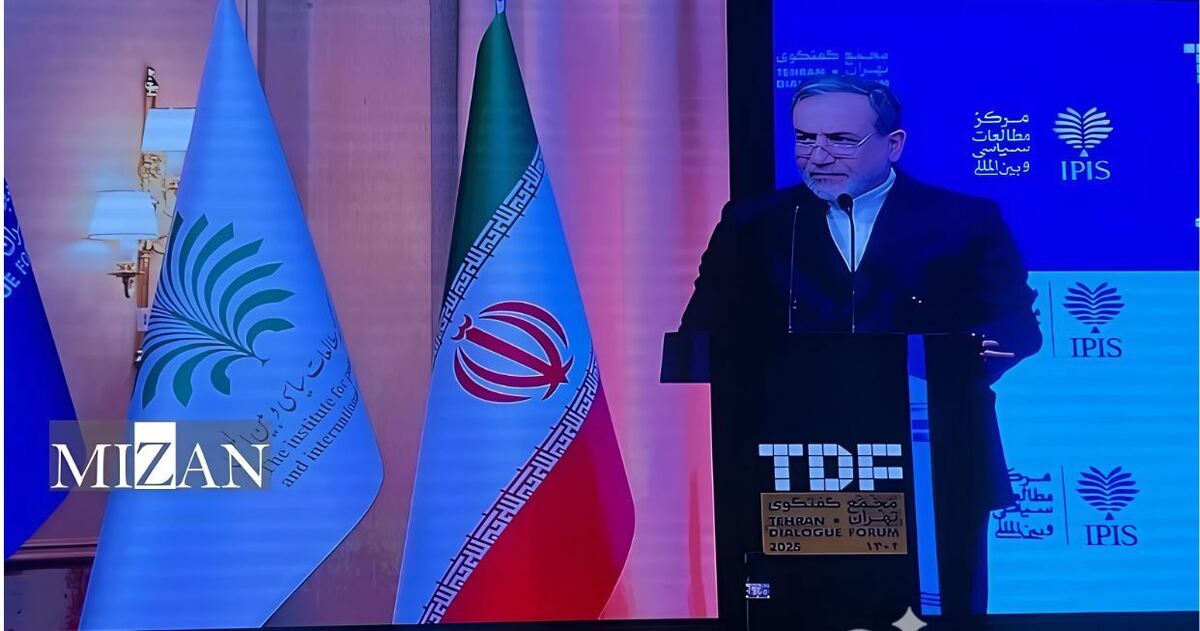Araghchi: Iran has never sought nuclear weapons

The Center for Political and International Studies of Iran’s Foreign Ministry is hosting the Tehran Dialogue Forum from May 18, 2025, for two days. The forum, attended by 200 delegations, including senior officials from 53 countries, ministers, and decision-makers from the Persian Gulf, as well as UN representatives, provides a significant platform for informal diplomacy.
Foreign Minister Seyyed Abbas Araghchi, speaking at the forum’s opening ceremony, noted the coincidence of the event with the days leading to the anniversary of the passing of the late President Martyr Raisi and his entourage. He said: “Here, I would like to honor the memory of my dear friend and colleague, the late Foreign Minister Martyr Hossein Amir Abdollahian, whose martyrdom, alongside President Raisi and their companions, is commemorated these days.”
Reviewing the past year’s international and foreign policy developments, the head of Iran’s diplomacy said: “Unfortunately, the past year was marked by bitter events and human tragedies. At the forefront of these calamities were the aggressions and crimes of the Israeli regime in Gaza—crimes that can undoubtedly be described as a stark and unprecedented example of genocide. A genocide that the world sometimes witnessed live on television screens or social media.”
Referring to the Gaza war’s toll, Araghchi noted: “Since October 2023, over 60,000 Palestinians have lost their lives in the Gaza Strip, many of whom were women and children. Millions have been displaced and subjected to siege and complete famine. Regrettably, the world has failed to respond to these crimes with a worthy and responsible reaction. The heavy silence and inaction of powers that claim to be defenders of ‘human conscience,’ alongside the inability of international institutions to curb this catastrophe, is truly shocking and a global wake-up call.”
He added: “The Gaza crisis has once again proven that, beyond the ineffectiveness of international institutions, the region’s fate cannot and should not remain contingent on the decisions and will of extra-regional powers. What is presented today as the ‘regional reality’ by them is, in fact, a reflection of deeply ‘constructed’ narratives and interpretations, solely based on their interests, which must be redefined and reformed from within the region.”
Araghchi continued: “Peace and security in our region are not possible without addressing the Palestinian issue honestly, thoroughly, and comprehensively. Today, the Palestinian issue is the most urgent and critical item on the region’s agenda. For over 70 years, the land of Palestine has been trapped in occupation, oppression, and injustice. The reality is that the Israeli regime has become a chronic threat to regional peace and stability—a threat that combines occupation, apartheid, genocide, and access to an arsenal of weapons of mass destruction.”
The Foreign Minister proposed: “We suggest a peaceful solution to the Palestinian issue: holding a national referendum with the participation of all native inhabitants of Palestine—Muslims, Christians, and Jews—to decide on the future political system of this land. This democratic and inclusive solution, inspired by the successful struggle against apartheid in South Africa, can end decades of occupation, discrimination, and injustice, paving the way for the return of refugees and the establishment of a unified, inclusive government across historic Palestine.”
Referring to indirect talks between Iran and the United States, Araghchi said: “Alongside regional issues, another important dimension of Iran’s current foreign policy is our peaceful nuclear program and the unilateral, unjust sanctions imposed on the Iranian nation by the United States.”
He continued: “As a party to the Non-Proliferation Treaty (NPT), the Islamic Republic of Iran, based on its religious and ethical principles, has never sought nuclear weapons and remains committed to the principle of non-production and non-use of weapons of mass destruction. We have always sought to address legitimate international concerns about our nuclear program through engagement and transparency.”
Emphasizing Iran’s desire for a fair and balanced agreement, the head of Iran’s diplomacy noted: “An agreement within the NPT framework, with full respect for Iran’s nuclear rights, that tangibly ensures the comprehensive lifting of sanctions. The Islamic Republic of Iran is committed to diplomacy and expects the unjust, unilateral sanctions directly targeting our people to be lifted in a real and tangible manner. We believe such an agreement can serve the interests of all parties and contribute to strengthening peace, security, and stability in the region.”